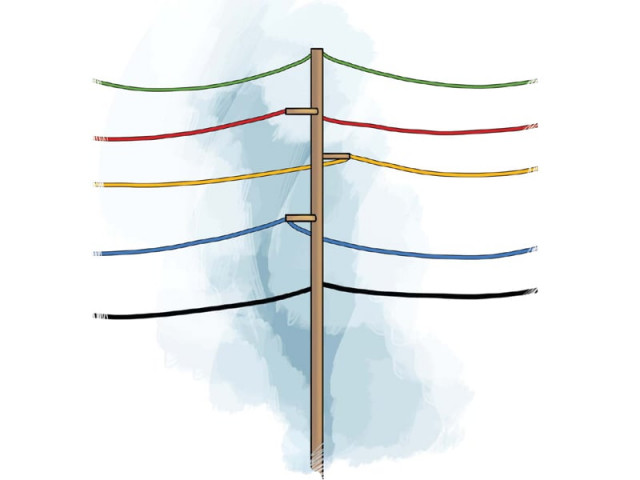KESC insists it is not an ‘alien’ in Karachi

The head of the city’s electricity company, Tabish Gohar, insisted that the company is needlessly blamed for parameters that are not under its control. “Negative reports by the media are ruining our image as it never reports that power outages have actually decreased compared to previous years,” said Gohar, adding that the company believes in the superiority of the customer.
Gohar pointed out that the four to six hours of power cuts that we face are nothing compared to the situation in the Punjab, particularly Lahore.
He gave a presentation to members of the Voice Of The Civil Society (VOTCS), a group of citizens trying to resolve the electricity crisis through interaction with the KESC management.
VOTCS, known for its Anti-Nizam-i-Adal campaign, has taken the initiative to raise the concerns of residents, who are respectable tax payers, said the group’s CEO Irum Farooque.
“I will not give guarantees as to when power outages will end completely but I have a plan that can help overcome shortages,” Gohar said, adding that the company has developed goals that it can achieve since it has been privatised.
The city’s demand for electricity ranged between 3,500 and 4,000 megawatts while KESC receives only 2,250MW. The company’s existing capacity is 1,500MW and it receives 350MW from Independent Power Producers, 400MW from the Water and Power Development Authority. The supply it received from the DHA Cogen Power Plant and Kanupp has recently been suspended due to technical faults.
KESC added 450MW to its network in September 2008 from an investment worth $300 million. Out of this, 220MW came from the Korangi plant that was recently inaugurated with the help of a Singaporean company, Gohar informed the audience.
In order to overcome the power shortage completely, a one-billion dollar investment in coal technology in Block 6 of the Thar coal field is also under consideration, he added.
Insisting that KESC is not solely responsible for power outages, Gohar accused the Sui Southern Gas Company of not supplying gas to KESC’s turbines. The demand and supply gap, fuel constraints, bottlenecks in transmission and distribution and cash flow constraints were among the other reasons he gave for power failures.
Between September 2008 and May 2010, KESC had a cash shortage of Rs33 billion, claimed Gohar, adding that a sum of Rs61 billion was currently outstanding from the Government of Pakistan and ‘public receivables’. “KESC did not even get a subsidy from the government when it was privatised four years ago,” he said.
The discussion between KESC’s management and members of VOTCS heated up when the company’s credibility and power theft surfaced. Some participants even demanded the CEO quit if the company was unable to tackle the problems.
A participant questioned Gohar on why the management took an interest in taking over the company if it only had figures to display without defining solutions.
Gohar explained that when the new management took over, it invested $360 million, out of which $270 million was spent by the government, but now the targets have changed as the number of consumers has gone up. The business plans were realistic but time-bound, he said defensively.
As for the power tariffs, Gohar said that it was National Electric Power Regulatory Authority (Nepra) that defined the structure and not KESC. A participant argued that Nepra only acts on the recommendations of power companies.
Published in the Express Tribune, July 13th, 2010.



















COMMENTS
Comments are moderated and generally will be posted if they are on-topic and not abusive.
For more information, please see our Comments FAQ